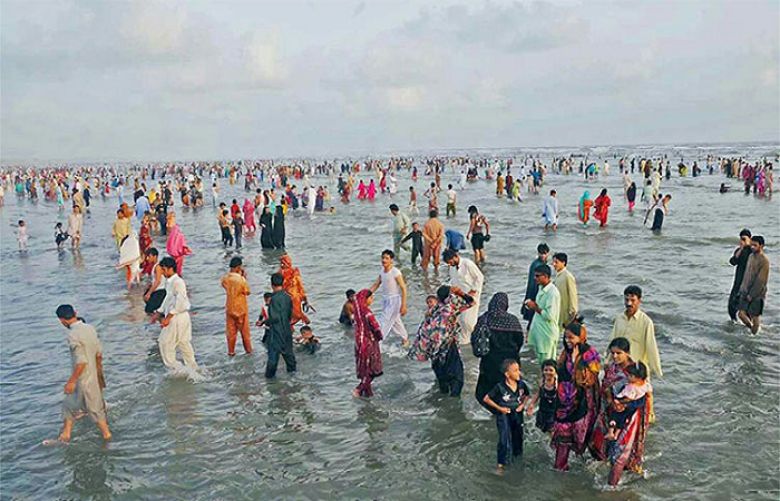
Karachi Administration Imposes Ban on Beach Visits Due to Arabian Sea Cyclone
As the Arabian Sea braces for a powerful cyclone, the Karachi administration has taken the precautionary step of banning public access to beaches. This decision, aimed at ensuring the safety of residents and visitors, highlights the potential dangers posed by the impending storm and the need for vigilant disaster preparedness.
The Cyclone Threat
The Arabian Sea has been experiencing increasingly severe weather patterns, with cyclones becoming more frequent and intense. The current cyclone, which is expected to make landfall in the coming days, has already prompted warnings from meteorological agencies. High winds, heavy rainfall, and storm surges are anticipated, posing significant risks to coastal areas.
Karachi, being a major coastal city, is particularly vulnerable to the effects of the cyclone. In the past, cyclones have caused extensive damage to property, infrastructure, and even loss of life. The city’s administration is keenly aware of these risks and has acted swiftly to mitigate potential harm.
The Ban on Beach Visits
The decision to ban public access to beaches is a critical component of the administration’s disaster response strategy. Beaches are among the most dangerous places to be during a cyclone, with the risk of drowning, injuries from flying debris, and other hazards. By preventing people from visiting these areas, the administration aims to minimize the likelihood of accidents and fatalities.
Law enforcement agencies have been tasked with enforcing the ban, and beachside businesses have been asked to temporarily close their operations. Public awareness campaigns are also underway to educate residents about the dangers of the cyclone and the importance of adhering to safety guidelines.
Preparations and Precautions
In addition to the beach ban, the Karachi administration has taken several other measures to prepare for the cyclone. Emergency response teams have been put on high alert, and evacuation plans are in place for low-lying areas that are at risk of flooding. Hospitals and medical facilities are also being readied to handle potential casualties.
Residents are being advised to stay indoors, secure loose objects, and avoid unnecessary travel. The administration has also issued warnings against venturing into the sea for fishing or recreational purposes. These precautions are essential for minimizing the impact of the cyclone and ensuring that the city is as prepared as possible for the storm’s arrival.
The Role of Public Cooperation
While the administration’s efforts are crucial, public cooperation is equally important in managing the cyclone threat. Residents need to follow the guidelines issued by authorities and take the necessary steps to protect themselves and their families. This includes staying informed about the latest weather updates, preparing emergency kits, and having a plan in place for potential evacuations.
The ban on beach visits is a temporary but necessary measure that reflects the seriousness of the situation. As the cyclone approaches, the focus remains on ensuring the safety and well-being of Karachi’s residents. The administration’s proactive approach, combined with public vigilance, will be key to navigating this natural disaster with minimal damage.







